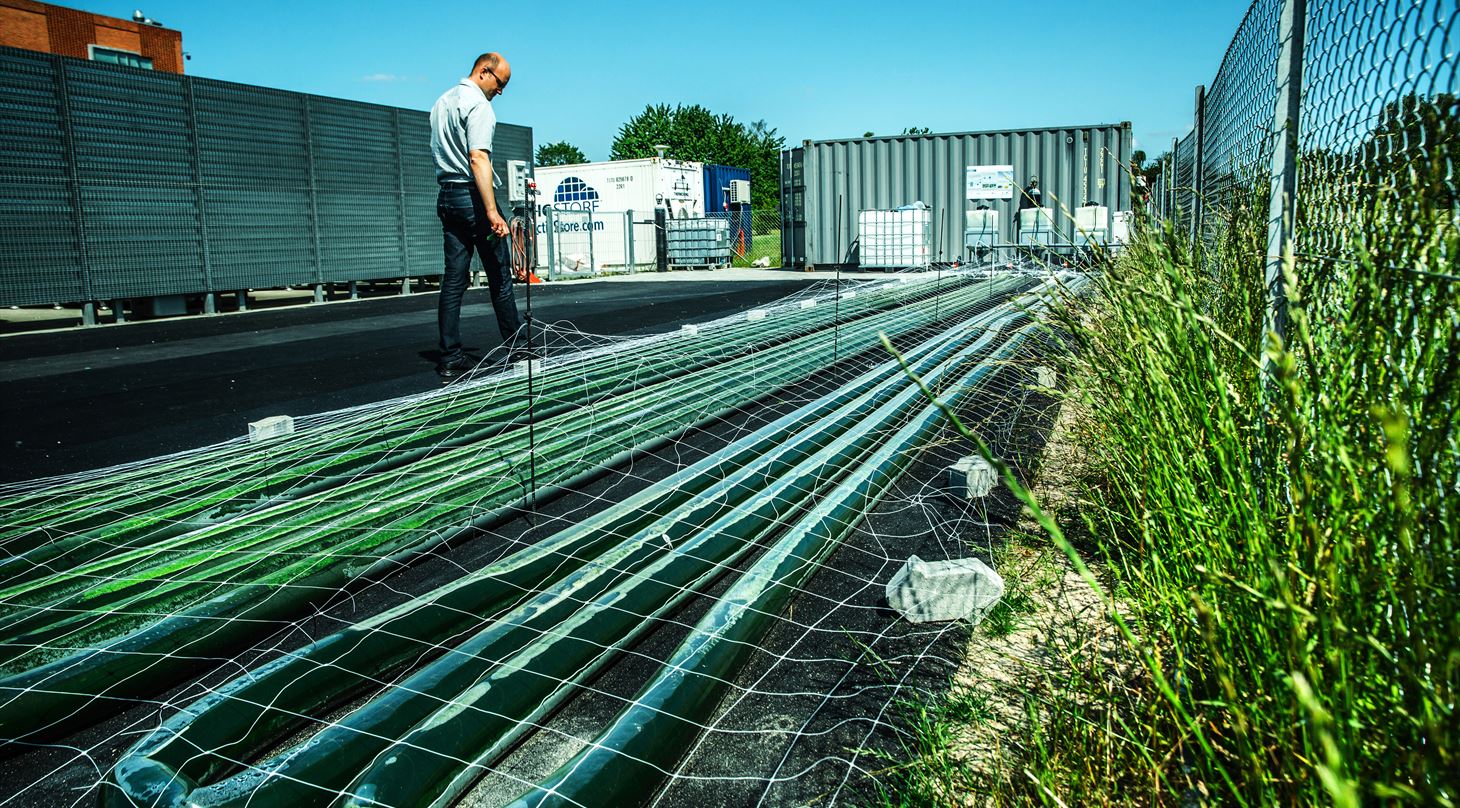.jpg)
Microalgae Services - Projects
At Danish Technological Institute (DTI), we work on a variety of microalgae projects that can benefit both the environment and society. Our research and innovation at DTI focus on harnessing microalgae to create sustainable solutions in areas such as food production, feed production, and energy production.
Sustainable and Affordable Ploidy Analysis in Plant Cells Using Flow Cytometry
This project develops a more sustainable and cost‑effective method for measuring ploidy levels in plant cells using flow cytometry. By replacing traditional, environmentally harmful DNA stains with greener alternatives, the project aims to make ploidy analysis more accessible, affordable, and eco‑friendly for plant breeding and biotechnology.
Enzymdrevet CO₂-fangst - Biobased Carbon Capture for Algae Production
The project aims to develop an innovative enzyme-based technology for CO₂ capture using immobilized carbonic anhydrase. This process converts CO₂ into bicarbonate, a more stable carbon source that can significantly boost microalgae growth for sustainable food and feed applications. The technology leverages industrial side streams and has potential for broad use in green processes.
ALGAESOL - Sustainable aviation and shipping fuels from microalgae and direct solar BES technologies
The objective of ALGAESOL is to develop cost-effective, sustainable, and renewable aviation and shipping fuels based on game-changing microalgae and direct solar fuel production and purification technologies in order to accelerate the replacement of fossil-based energy technologies. Within the project, DTI is working on identifying early warning signals and tackling the contamination issues and in large scale microalgae production.
MICROFOAM - Bio-based fire retardants using microalgal foam
Overall ambition of MICROFOAM is to develop a microalgae-based sustainable foaming material for fire retardants. The sustainability will be improved by use of sidestream nutrients and efficient lighting system for microalgae. Within this project, DTI will optimize the sustainable cultivation of foam forming microalgae and develop non-toxic microalgal foam for use in fire retardants.
PIGMENT - Sustainable macroalgae biorefinery for co-production of phycoerythrin
PIGMENT will develop a climate-friendly, sustainable biorefinery for co-production of phycoerythrin (PE), a high-value pigment as a co-product of methane-inhibiting compounds bioprocess using red macroalgae tetraspores. DTI will apply their expertise in microalgae bioprocess to macroalgae tetraspores production and optimize their biomass and PE productivity. Further, DTI will develop and optimize greener PE extraction system with a view to achieving maximum PE yield.
MAGIC - MicroAlgae-based organic Gourmet Ice Cream
The MAGIC project aims to develop innovative organic ice cream products with microalgae, specifically Chlorella. Most commercially available organic microalgae have strong green color and strong flavors (earthy, grassy, or fishy) that limit their application in organic food products. MAGIC will develop minimal processing methods to remove color and off-flavors from organic green Chlorella while maintaining its nutritional benefits, making it suitable for premium organic ice cream applications.
SEAlgaePower - Sustainable development of microalgae-based ingredients using waste streams from aquaculture and seafood processing industry
The SEAlgaePower project aims to develop innovative technologies where microalgae can clean currently wasted nutrient-rich water from the aquaculture and seafood processing industry while simultaneously producing biomass for development of novel ingredients in a sustainable way. The fast-growing aquaculture and seafood processing industry generate large amounts of nutrient-rich wastewaters, posing a high cost for discharge and environmental impact. SEAlgaePower will harness the photosynthetic ability of microalgae to efficiently convert dissolved nutrients into valuable biomass, turning a current cost into an income source through valorisation.